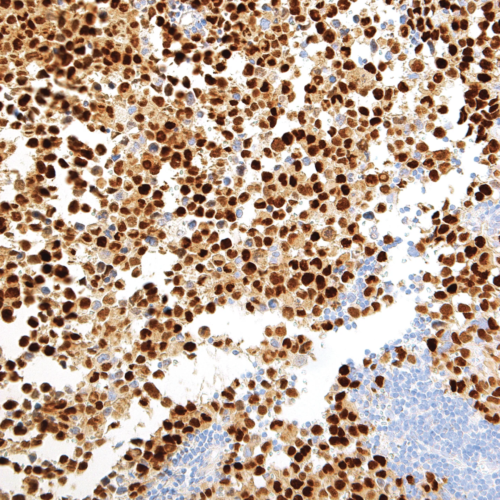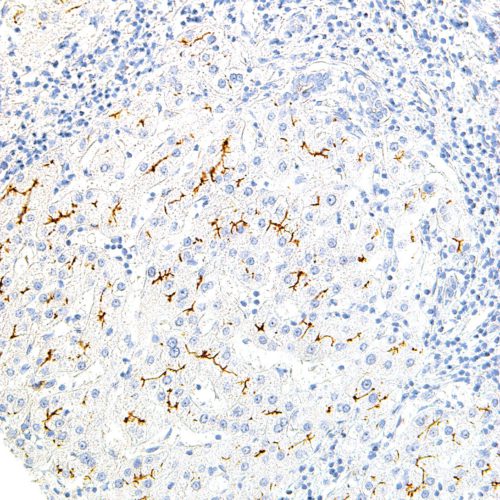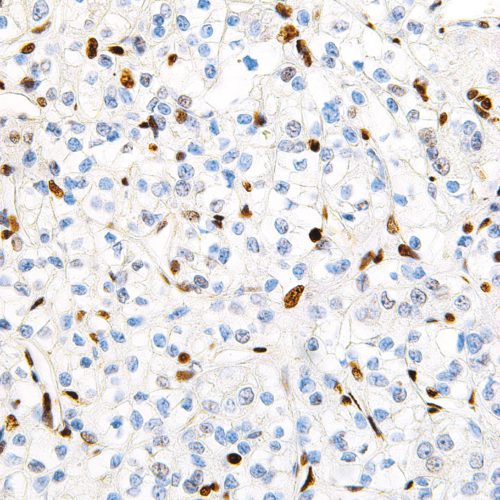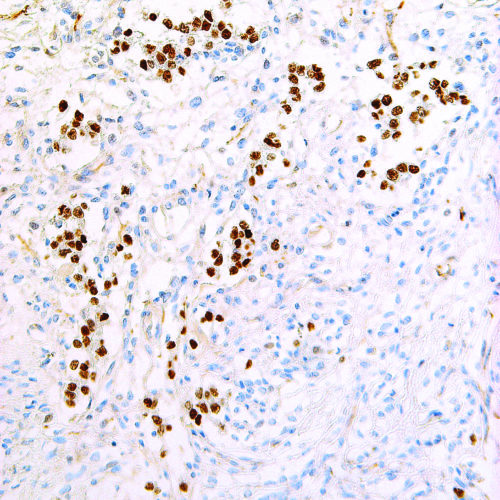High quality products to support Pathologists and Biological and Environmental Scientists
GeneAb™ Myogenin
$102.12 – $408.50Myogenin belongs to a family of myogenic transcription factors, including MyoD, myf5, and MRF4, which are critical in muscle development. Myogenin is found strictly in cells of skeletal muscle origin, and is therefore used as a biomarker for tumors of the muscle lineage, including alveolar rhabdomyosarcomas. Anti-Myogenin staining may occur in Wilms’ tumor, and labels the nuclei of myoblasts in developing muscle tissue. It is also expressed in some leiomyosarcomas.
GeneAb™ MDR3
$225.75 – $1,053.50Multidrug Resistance 3 (MDR3), also known as ATP Binding Cassette Subfamily B Member 4 (ABCB4), is a membrane-associated protein belonging to the superfamily of ATP-binding cassette transporters. MDR3 is an energy-dependent phospholipid efflux translocator that mediates the translocation of phosphatidylcholine across the canalicular membrane of the hepatocyte, and also acts as a positive regulator of biliary lipid secretion. Defects in MDR3 are associated with progressive familial intrahepatic cholestasis type 3 and gallbladder disease type 1. Co-overexpression of MDR3 and MRP1 has been documented as correlating with blastemal subtype and high-risk prognosis of Wilms’ tumor patients.
GeneAb™ TFE3
$107.50 – $526.75Transcription Factor E3 (TFE3) is a transcription factor that binds to the MUE3-type E-box sequences involved in TGF-β signalling. Anti-TFE3 staining is the most sensitive and specific indicator of Xp11 translocation renal cell carcinomas. Since alveolar soft part sarcoma (ASPS) is characterized by a specific chromosomal rearrangement resulting in a chimeric transcription factor (ASPSCR1-TFE3), this TFE3 IVD antibody is also a useful diagnostic tool for recognizing ASPS.
GeneAb™ Nanog
$107.50 – $435.38Nanog is a homeoprotein that functions with pluripotent factors such as Oct4 and Sox2 to maintain embryonic stem cell pluripotency. Expression of this protein has been noted in seminoma, dysgerminoma, embryonal carcinoma, and other undifferentiated germ cell tumors, while nanog expression is absent in normal adult organ tissues. Anti-Nanog may be useful in distinguishing between undifferentiated germ cell tumors and non-germ cell tumors.



